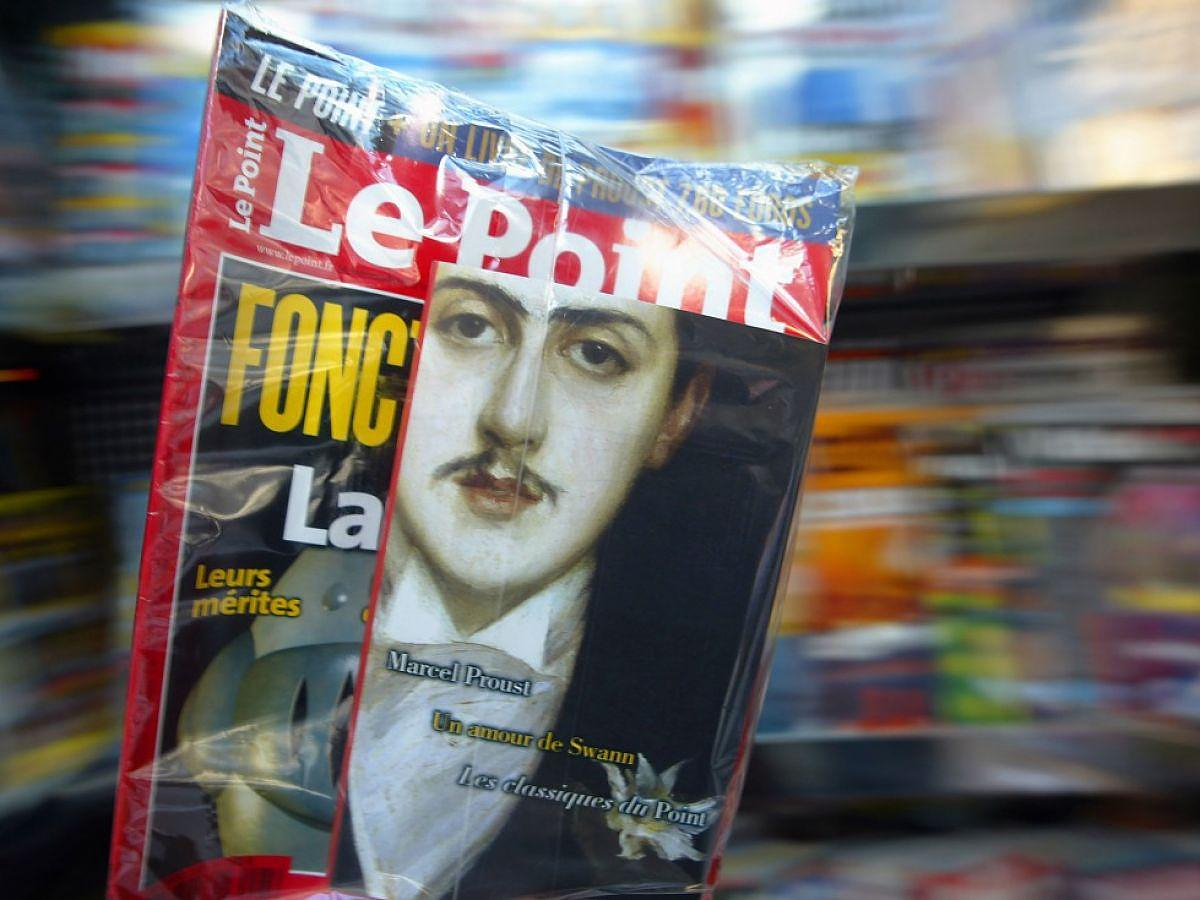A Nobel Prize in Literature for courage? One can imagine how Annie Ernaux finds this justification. Probably a little stale. She is the first French woman to receive the prize, but she has already considered beforehand whether she should not do better than Jean-Paul Sartre, who rejected it in 1957, or like Albert Camus, who took the opportunity to issue warnings.
"What's the point of the Nobel Prize in Literature?" she asked. It's a bit of a gamble and the list of those who received it isn't that impressive because the authors didn't necessarily leave behind an impressive work. “Whoever receives it gets a lot of money and at the same time a kind of inviolability. Both seem unhealthy to me," Ernaux recently told the Belgian daily Le Soir, adding: "I hope October will be calm this year and all the years to come."
In France, everyone agrees that the "great Annie Ernaux" deserves this prize. There is no other literary voice that has made itself heard over the decades with the same calmness, the same tenacity and without any egocentric vanity. Her large and long-standing fan base cheers, the literary critics feel their judgment has been confirmed.
Emmanuel Macron - Ernaux is considered "anti-Macron" - praised her as "the voice of freedom for women and the forgotten of the century". Jean-Luc Mélenchon is even "crying with joy", as the hapless presidential candidate of the left-wing party "Indomitable France" asserts. No wonder. 82-year-old Ernaux has been a loyal supporter of him and his party “La France insoumise” since the very beginning. She speaks the language "that is not that of money," Mélenchon wrote in a tweet. "An indomitable woman, une insoumise, has won the Nobel Prize for Literature," jubilated a party member.
The joy is so great, also because Ernaux is a woman. As a woman, she deserved the Nobel Prize in Literature precisely because she did not make her gender the subject of her books, but rather the structures of a society that sets limits for women, puts obstacles in their way and does not give them the same rights. But it didn't take courage to do it. More like rebellion. Revolt. Her writing is a quiet but powerful contradiction. Her style is dry, seemingly dispassionate.
"Right from the start I was driven by a desire for justice and equal treatment," Ernaux said a few months ago in an interview with WELT. She sat in her home in Cergy, a suburb of Paris, and described with clinical accuracy the view from her window. In recent months she has often turned down encounters and canceled at the last minute a visit to a Belgian literature festival that she wanted to honor this summer.
Although all of her books are invariably biographical, she is not a self-centered writer. For her, writing is not an activity, but a place. A space of experience. "I've always tried to get rid of myself and understand what's really at stake: society, gender relations," she told the newspaper, adding, "This is the place I'm writing from. For me, writing means: choosing your place.”
She chose hers very consciously. Having grown up in a working-class family, she quickly freed herself from her modest circumstances, made herself financially independent and intellectually emancipated. But it was in her parents' deli in the small Normandy village of Yvetot that she developed her class consciousness. As a café, it was heated and the focal point of the place. Ernaux witnessed how many families, despite working, could not make ends meet and had to register. At the same time she heard the language of all classes.
She liked to describe herself as a “class defector” and spent her life writing against any form of oppression. While she was still studying to be a teacher, she married a fellow student, a bourgeois man, who made her understand the class difference throughout the years of marriage until Ernaux put an end to the toxic relationship.
To this day, she proudly describes herself as a feminist writer. "I may have disagreed with bourgeois feminists in the past," she revealed, "but I've always espoused what would now be called universal feminism, and I've been on the side of intersectionality, even if the word not yet existed. There was a lot of talk about patriarchy back then. I've seen this happen in many families, but not in mine. The women of my youth and milieu were not women who had submitted. Let's put it this way: We just had other problems. As early as 1981, in my book 'La femme gelée', I spoke of the mental charge, what is now called the mental burden of having to take care of everything. I got a lot of scorn for it back then.”
Ernaux was only rediscovered in Germany after the books by her students Didier Eribon and Edouard Louis were celebrated in this country. In 1993 her novel "A Perfect Passion" was published in German and was a success. Then the connection broke. “It was like a broadcast hole. I didn't realize that 'The Shame' hadn't been translated for years," she says.
Evidently, Ernaux quickly chose Camus, not Sartre, and accepted the prize. "I consider it a great honor that I am being given, that I am being given, but at the same time it is a great responsibility, a responsibility that I am being given by being awarded the Nobel Prize in Literature," was her first reaction on Swedish television . She spoke of the responsibility to "bear witness with a form of accuracy and justice in relation to the world."

 His body naturally produces alcohol, he is acquitted after a drunk driving conviction
His body naturally produces alcohol, he is acquitted after a drunk driving conviction Who is David Pecker, the first key witness in Donald Trump's trial?
Who is David Pecker, the first key witness in Donald Trump's trial? What does the law on the expulsion of migrants to Rwanda adopted by the British Parliament contain?
What does the law on the expulsion of migrants to Rwanda adopted by the British Parliament contain? The shadow of Chinese espionage hangs over Westminster
The shadow of Chinese espionage hangs over Westminster What High Blood Pressure Does to Your Body (And Why It Should Be Treated)
What High Blood Pressure Does to Your Body (And Why It Should Be Treated) Vaccination in France has progressed in 2023, rejoices Public Health France
Vaccination in France has progressed in 2023, rejoices Public Health France Food additives suspected of promoting cardiovascular diseases
Food additives suspected of promoting cardiovascular diseases “Even morphine doesn’t work”: Léane, 17, victim of the adverse effects of an antibiotic
“Even morphine doesn’t work”: Léane, 17, victim of the adverse effects of an antibiotic Collection of booklet A stalls in March
Collection of booklet A stalls in March Kering expects a 40 to 45% drop in operating profit in the first half
Kering expects a 40 to 45% drop in operating profit in the first half Smartphones, televisions, household appliances… MEPs adopt a “right to repair”
Smartphones, televisions, household appliances… MEPs adopt a “right to repair” Fintechs increasingly focused on business services
Fintechs increasingly focused on business services The standoff between the organizers of Vieilles Charrues and the elected officials of Carhaix threatens the festival
The standoff between the organizers of Vieilles Charrues and the elected officials of Carhaix threatens the festival Strasbourg inaugurates a year of celebrations and debates as World Book Capital
Strasbourg inaugurates a year of celebrations and debates as World Book Capital Kendji Girac is “out of the woods” after his gunshot wound to the chest
Kendji Girac is “out of the woods” after his gunshot wound to the chest The Court of Auditors scrutinizes the management and projects of the Center Pompidou
The Court of Auditors scrutinizes the management and projects of the Center Pompidou Skoda Kodiaq 2024: a 'beast' plug-in hybrid SUV
Skoda Kodiaq 2024: a 'beast' plug-in hybrid SUV Tesla launches a new Model Y with 600 km of autonomy at a "more accessible price"
Tesla launches a new Model Y with 600 km of autonomy at a "more accessible price" The 10 best-selling cars in March 2024 in Spain: sales fall due to Easter
The 10 best-selling cars in March 2024 in Spain: sales fall due to Easter A private jet company buys more than 100 flying cars
A private jet company buys more than 100 flying cars This is how housing prices have changed in Spain in the last decade
This is how housing prices have changed in Spain in the last decade The home mortgage firm drops 10% in January and interest soars to 3.46%
The home mortgage firm drops 10% in January and interest soars to 3.46% The jewel of the Rocío de Nagüeles urbanization: a dream villa in Marbella
The jewel of the Rocío de Nagüeles urbanization: a dream villa in Marbella Rental prices grow by 7.3% in February: where does it go up and where does it go down?
Rental prices grow by 7.3% in February: where does it go up and where does it go down? Europeans: “All those who claim that we don’t need Europe are liars”, criticizes Bayrou
Europeans: “All those who claim that we don’t need Europe are liars”, criticizes Bayrou With the promise of a “real burst of authority”, Gabriel Attal provokes the ire of the opposition
With the promise of a “real burst of authority”, Gabriel Attal provokes the ire of the opposition Europeans: the schedule of debates to follow between now and June 9
Europeans: the schedule of debates to follow between now and June 9 Europeans: “In France, there is a left and there is a right,” assures Bellamy
Europeans: “In France, there is a left and there is a right,” assures Bellamy These French cities that will boycott the World Cup in Qatar
These French cities that will boycott the World Cup in Qatar Football: VAFC supporters are ironic after their descent into National
Football: VAFC supporters are ironic after their descent into National Tennis: Carlos Alcaraz should play in Madrid
Tennis: Carlos Alcaraz should play in Madrid Football: victim of discomfort in the middle of a match in mid-April, Evan Ndicka will resume training with AS Roma
Football: victim of discomfort in the middle of a match in mid-April, Evan Ndicka will resume training with AS Roma Ligue 1: PSG almost champion, OM, shock for the C1… 5 reasons to follow an exciting evening
Ligue 1: PSG almost champion, OM, shock for the C1… 5 reasons to follow an exciting evening


















